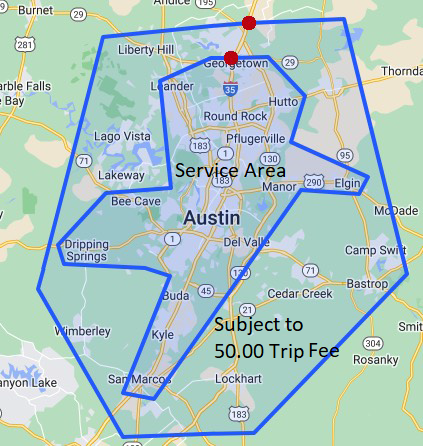Frequently Asked Questions
What is a Home Inspection?
A home inspection is an objective visual examination of the physical structure and systems of a house, from the roof to the foundation.
What does a Home Inspection include?
The standard home inspector’s report will cover the condition of the home’s heating system; central air conditioning system (temperature permitting); interior plumbing and electrical systems; the roof, attic and visible insulation; walls, ceilings, floors, windows and doors; the foundation, basement and structural components.
What will it cost?
The inspection fee for a typical one-family house varies depending on a number of factors such as the size of the house, its age and possible optional services such as septic, sprinkler system, pool, lead-based paint or mold testing. Do not let cost be a factor in deciding whether or not to have a home inspection or in the selection of your home inspector. The sense of security and knowledge gained from an inspection is well worth the cost, and the lowest-priced inspection is not necessarily a bargain. Use the inspector’s qualifications, including experience, training, compliance with your state’s regulations, if any, and professional affiliations as a guide. Service Fees can be viewed here.
What is your service area?

We serve Austin and its adjacent cities. For further info see our service area map and areas subject to a $50.00 trip fee. We can travel outside of our range in certain cases, please inquire with us for anything outside of the map. We are expanding our service to the Greater San Antonio area, please inquire with us to schedule, or schedule in this area online with Alan Bentz TREC No. 23780.
Why can't I do it myself?
Even the most experienced homeowner lacks the knowledge and expertise of a professional home inspector. An inspector is familiar with the elements of home construction, proper installation, maintenance and home safety. He or she knows how the home’s systems and components are intended to function together, as well as why they fail.
Above all, most buyers find it difficult to remain completely objective and unemotional about the house they really want, and this may have an effect on their judgment. For accurate information, it is best to obtain an impartial, third-party opinion by a professional in the field of home inspection.
When do I call a Home Inspector?
Typically, a home inspector is contacted immediately after the contract or purchase agreement has been signed. Before you sign, be sure there is an inspection clause in the sales contract, making your final purchase obligation contingent on the findings of a professional home inspection. This clause should specify the terms and conditions to which both the buyer and seller are obligated.
Do I have to be there?
While it’s not required that you be present for the inspection, an on site consultation is recommended to assist in your understanding of the findings discovered during the inspection process. If you're not able to attend a site consultation, our inspectors can consult by phone. Typically an on site consultation occurs during the last 30 minutes of the inspection. If you anticipate attending the on site consultation, please reach out to your inspector (contact information located in your confirmation email), or our office to coordinate the timing.
What if the report reveals a problem?
No house is perfect. If the inspector identifies problems, it doesn’t mean you should or shouldn’t buy the house, only that you will know in advance what to expect. If your budget is tight, or if you don’t want to become involved in future repair work, this information will be important to you. If major problems are found, a seller may agree to make repairs.
If the house proves to be in good condition, did I really need an inspection?
Definitely. Now you can complete your home purchase with confidence. You’ll have learned many things about your new home from the inspector’s written report, and will have that information for future reference.